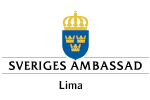![]() LIMA – On February 17, Pope Francis is scheduled to celebrate Mass in Ciudad Juárez, Mexico, just south of the border with the United States. He will surely take that opportunity to urge support for the poor in Mexico and for those who have migrated north.
LIMA – On February 17, Pope Francis is scheduled to celebrate Mass in Ciudad Juárez, Mexico, just south of the border with the United States. He will surely take that opportunity to urge support for the poor in Mexico and for those who have migrated north.
After all, that is what he did in September during his moving homily in New York’s Madison Square Garden.Referring to the 11 million undocumented immigrants in the US, he asked his listeners to reach out to “all those people who don’t appear to belong, or are second-class citizens…because they have no right to be there.”
But the absence of rights is a problem that is neither unique to the US nor confined to immigrants who lack legal authorization to remain in the country in which they reside. Far larger and far more damaging is the difficulty that afflicts the five billion people who lack documented property rights. In Mexico alone, there are ten million urban homes, 137 million hectares of land, and six million businesses whose owners’ rights are poorly protected.
If Francis focuses only on undocumented immigration in his Juárez address, his message is likely to become bogged down in a debate about US security concerns and countries’ sovereign right to protect their borders. If, instead, he expands the discussion to include the importance of clearly documented property rights within countries, he will be on much firmer ground. Property rights are a universal right enshrined in the US Constitution and the United Nations Charter. Indeed, it is in search of just such rights that many of the world’s poor are motivated to cross borders into countries like the US.
For those living in the richest parts of the world, it is easy to take clear property rights for granted. But the reality is that only 2.3 billion people have the documents to protect and leverage their rights – including approximately one billion people living in Japan, Singapore, and the democratic West, and another billion in certain developing countries and former Soviet states.
....
Read the full article on the website of New Europe


